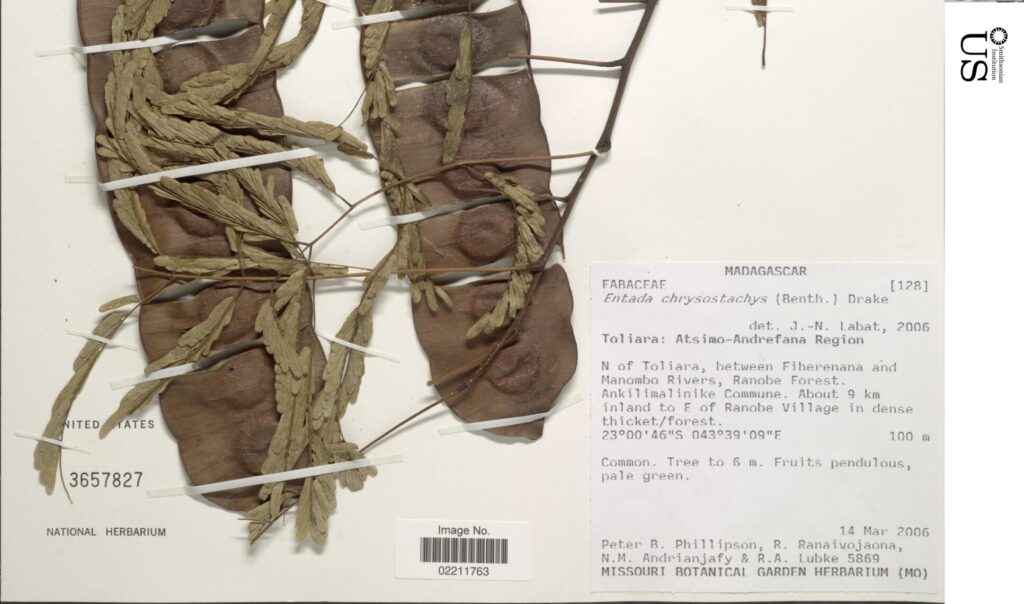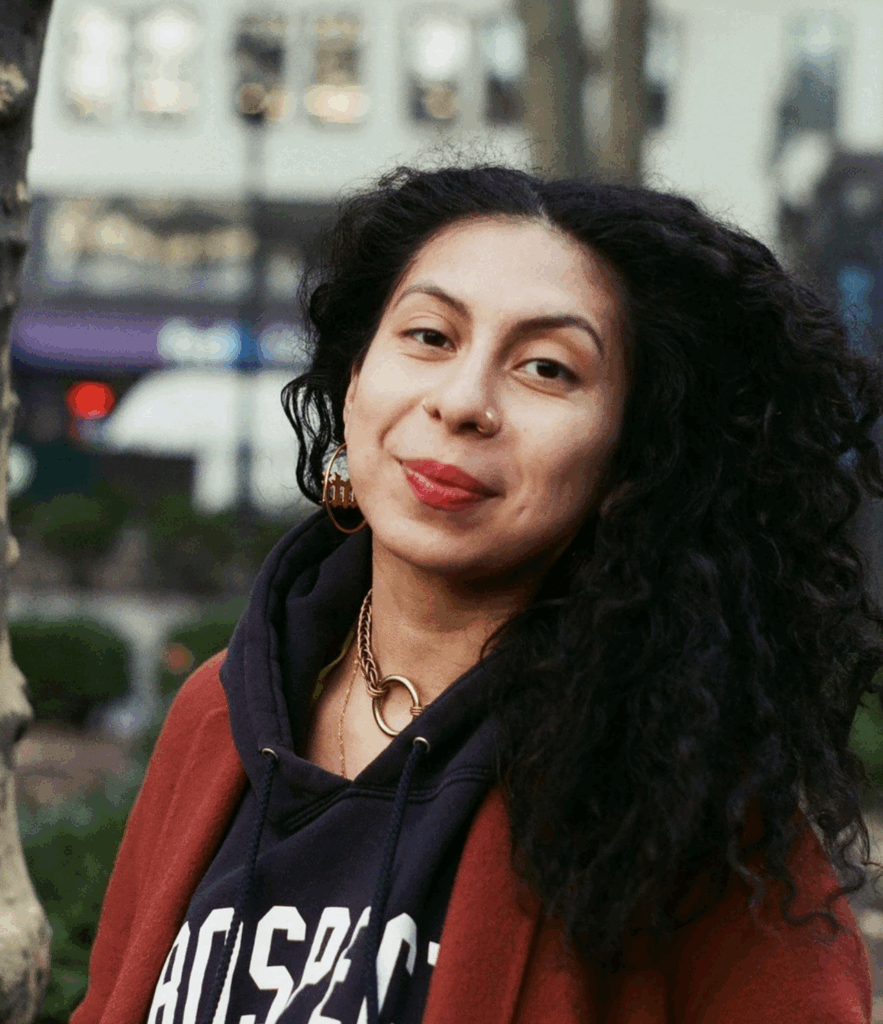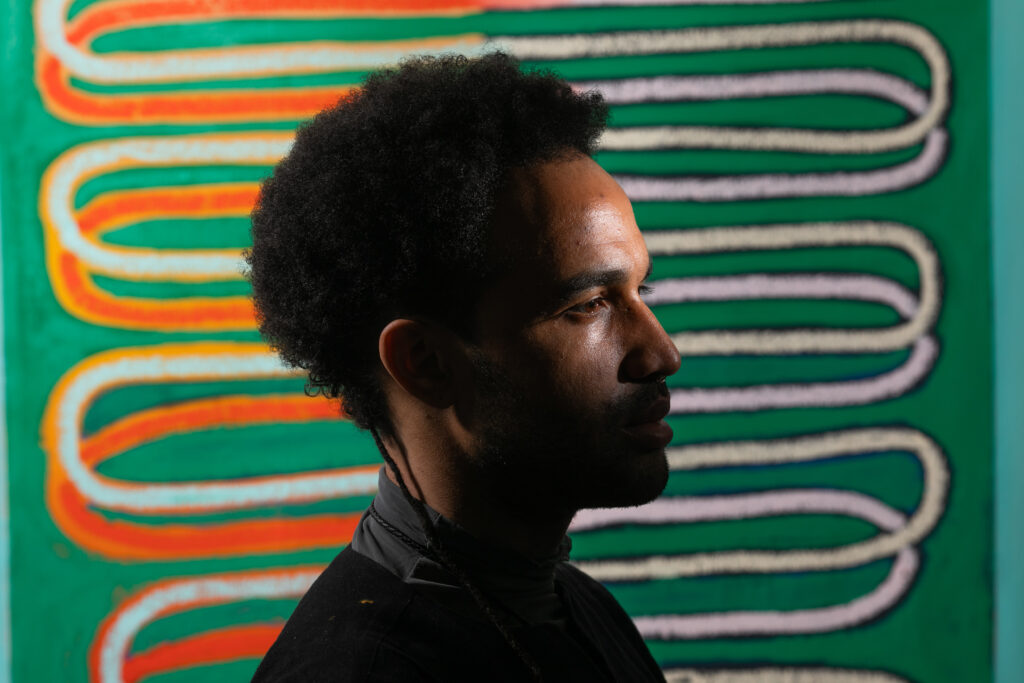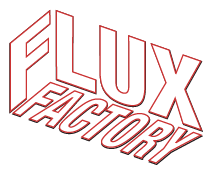Rhizome Fellowships

Seed pods of fàno (used in sikidy, Malagasy divination), US National Herbarium.
Rhizome Fellowships make time and space to forge stronger ties between Flux’s collective network and community-based practice engaging under-heard, under-seen, and under-supported voices in Queens. 2025-2026 is the inaugural year of the fellowship. The fellowships are an annual residency and exhibition opportunity, iterating on The Rhizome Project, initiated by Haiba Hamilton and Natalia Nakazawa in 2020.
The next open call for Rhizome Fellowships will be in the spring of 2026.
2025 – 2026 Rhizome Fellows


Image: dre Jácome (left) and Zella Vanié (right)
This summer, Flux Factory is pleased to welcome dré jacome (left) and Zella Vanié (right) as our 2025-2026 Rhizome Fellows. Earlier this year, the Rhizome Fellowship open call received over 70 proposals resonating with Octavia E. Butler’s essay, “A Few Rules for Predicting the Future” (2000), juried by artists Kamari Carter, Utsa Hazarika, and Flux Factory staff. dré and Zella’s applications emerged for outstanding vision and collectivist principles aligned with Flux’s mission. The artist-organizers will work closely with Meghana Karnik, Curator & Exhibitions Director, guest critics, neighborhood partners, and Flux’s extended communities on public projects slated for 2026 at Flux IV. Each fellow carries experience in grassroots organizing and convening spaces for storytelling and knowledge production to the fellowship period:
dre jácome will revisit the interactive storytelling archive and installation, Earthseed, that weaves together land-based, Indigenous, and contemporary technologies — inspired by temazcal (sweat lodge) ceremonies, ecological design, and the survival cosmologies envisioned in Octavia Butler’s Parable series. Modeled after the protective form of the pinecone, which opens and closes in response to its environment, Earthseed collects intimate stories of survival and makes protective space for critical memory work.
Zella Vanié will elaborate on We Be Coming Free, a zine series developed communally, through integrated workshops drawing on Black imagination, somatic wisdom, and contemporary critical thought. The project aligns with a broader initiative, Experimental School for Black Imagination, a collective organized by Zella and troizel, devoted to reconnecting Black artists and communities with their intuition, creativity, and the natural environment through retreats and educational programs.
ARTIST BIOS
dre jácome is a transdisciplinary storyteller weaving across land-based and digital technologies. as a child of the andes mountains, magdelena river, and georgia red clay, she has been a lifelong student studying the subversive healing technologies found on the land and body. inspired by magical realism and the survival arts of everyday living, her work aims to oppose and propose experimental counter archives that honor and defend BIPOC intimate knowledge systems held in story, nature, and recovering cosmologies. with her background as a trained herbalist, historian, and cultural organizer, she grounds her creative storytelling projects with relational methods including archival research, oral history, critical ethnobotany, and partnerships with community organizations and chosen family. she works across mediums including design, poetry, assemblage, computation, video, audio, and installation. her work has appeared at Lincoln Center, Smack Mellon, and MOCADA Abolition House. she has been a resident with Future Histories Studio and Wildseed Community Farm, and she serves on the Community Advisory Council at Powerhouse Arts. she received a BA in History & Latin American Studies from Swarthmore College, and a MS in Interactive Telecommunications from NYU.
Zella Vanié is an artist and designer bridging creative practice with community empowerment. They have exhibited globally, including in galleries across New York, New Jersey, Connecticut, Philadelphia, and Amsterdam—where they participated in a group show marking 150 years since the abolition of slavery in Dutch colonies. Their work has been supported with grants from Mass MoCA, the Canopy Program, Flux Factory, and The Other Art Fair. Vanié is a founding organizer with the Experimental School for Black Imagination, a collective offering led by artists tending to the ways we come together to create, feel, and grow. They are also a board member and design lead with the Black Veterans Project. Before their creative career, Vanié served in the U.S. Army as a paratrooper and satellite technician, with deployments to Iraq and Haiti. After transitioning to civilian life as a design strategist in New York, they led work that transformed visions across education, technology, and social impact. Vanié earned an MFA in Interaction Design from the School of Visual Arts; and they split their time between New York City and Côte d’Ivoire. Above all, Vanié’s work aims to ask new questions about what it means to be free, while being a mirror for Black queer folks; visualizing our beauty, divinity, and boundless new worlds that have always been ours to take up spiritual residence in.
Past Open Calls & Practical Information
2025 – 2026 Call: A Few Rules for Predicting the Future
The 2025-2026 theme departs from science fiction writer Octavia E. Butler’s essay, “A Few Rules for Predicting the Future” (2000), originally published in Essence magazine following the release of Butler’s Parable series. This open call invites projects connected with prediction, waymaking, futurecasting, or worldbuilding; or resonating with Butler’s principles to learn from the past, respect the law of consequences, be aware of one’s perspective, and count on surprises. In Butler’s words:
“The one thing my characters and I never do is give up hope. In fact, the very act of trying to look ahead to discern possibilities and offer warnings is in itself an act of hope…[]…Making predictions is one way to give warning when we see ourselves drifting in dangerous directions. Because prediction is a useful way of pointing out safer, wiser courses. Because, most of all, our tomorrow is the child of our today.”
From June through December 2025, two New York-based artists or culture workers of color will work closely with Flux Factory’s staff to develop a duo exhibition or public program sited at the organization’s new venue, Flux IV, in Long Island City (Hunters Point South). Artists working across disciplines in New York are invited to apply. Applicants should be able to articulate a vision to develop either (1) new work for public presentation or (2) to bring existing work into a new phase using the fellowship’s commissioning structure.
Applications Closed: April 10, 2025, 11:59 PM (Eastern)
Fellowship Structure
Two 2025 Rhizome Fellows will receive:
- $2000 artist fee + $2000 to use towards production
- Bimonthly curatorial mentorship and logistical support from the Curator & Exhibitions Director (concept to realization); dedicated time in Flux IV for a public program along with communications, curatorial, and production support from staff
- Introductions and access to the Flux Factory collective
- Studio visits with guest advisors
- Access to Flux Factory’s workspaces
Eligibility & Criteria
- All disciplines welcome; applications are assessed for imagination and feasibility, with successful applicants selected for visionary use of the fellowship structure
- Applicants must be emerging, age 21 and over, and not presently in a degree-granting program
- Applicants must be based in New York and Queens-based practitioners who are our neighbors (based Long Island City, Astoria, Sunnyside, Ridgewood, etc.) are strongly encouraged to apply
- In alignment with The Rhizome Project’s history, marginalized or minoritized voices are strongly encouraged to apply (but the proposed project need not address identity)
Office Hours
If you have questions about eligibility or the application, please contact Meghana Karnik, Curator & Exhibitions Director at meghana[at]fluxfactory[dot]org. Staff hosted an office hours session via Zoom on March 18, 2025 from 5-6 PM.
Application Questions & Materials
Applications are submitted on Airtable [Link]. We recommend completing written questions on a word processor before using the submission platform. For inspiration, here is a link to Butler’s essay.
Questions:
- Project Description. If the work has already been publicly programmed, tell us about that experience. How would the fellowship establish a new phase of research or practice? (limit: 3000 characters)
- Considering the thematic focus, A Few Rules for Predicting the Future, what do you hope to learn or develop? What resources do you need to do this work? (limit: 3000 characters)
- In practical terms, how do you want to use the presenting opportunity at Flux IV? Some examples could be an exhibition, small gatherings, a performance series, etc. (limit: 1000 characters)
- What draws you to this open call and why now? (limit: 1000 characters)
Materials Requested:
- CV/Resume
- 3 Work Samples (most files supported)
- 1 Supplemental URL Link (website, social media, etc.)
Jury Selection & Process
Open call applications will be reviewed by 2025 Rhizome Jurors, Kamari Carter and Utsa Hazarika, alongside Meghana Karnik, Curator & Exhibitions Director. Staff will make an initial review of applications and a smaller pool will be reviewed by a panel jury. Jury members will abstain from selection where they have a personal or professional relationship with a fellowship candidate. Applications will be reviewed by staff and jury only. A shortlist of candidates will be interviewed and all applicants will be notified of their status by early May 2025.
History: The Rhizome Project
The Rhizome Project was initiated by Haiba Hamilton and Natalia Nakazawa (Flux Factory board members) in 2020 as a commitment to give intentional space to Black voices, dedicating part of Flux Factory’s operating budget for this development. The vision behind this gesture was to weave stronger ties between Flux Factory and under-heard, under-seen, and under-supported voices with a focus on rooting Flux in Queens, one of the world’s most ethnically diverse places.
In the last five years, The Rhizome Project resulted in various initiatives, including the recent exhibition, The Voice of Many, The Voice of One: Collective Actions for Resistance and Mutual Aid (2023), curated by Hamilton and Nakazawa at The Clemente Soto Vélez Cultural & Educational Center. The Rhizome Project is an evolving entity. Through a process of listening to our past and future fellows, we will specify its vision, values, and impact.
